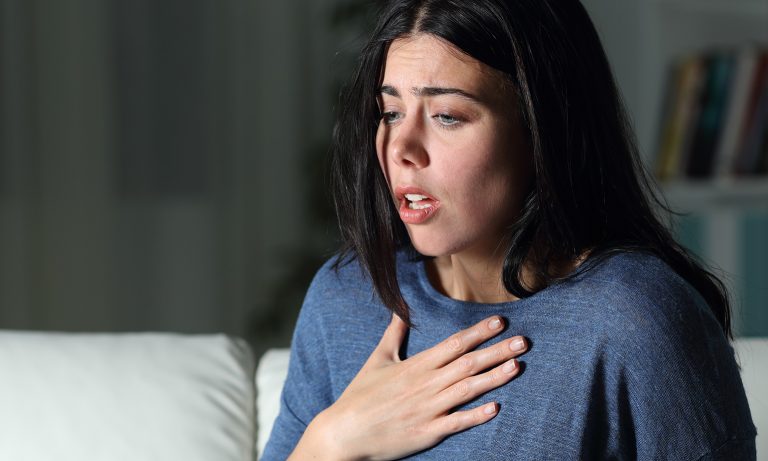An anxiety attack, also known as a panic attack, is a sudden, intense feeling of fear or worry that can be overwhelming and incapacitating. It is often accompanied by physical symptoms such as racing heart, shortness of breath, dizziness, and chest pain, as well as mental symptoms such as racing thoughts and a sense of impending doom. Anxiety attacks can be triggered by a variety of factors, including stress, trauma, and other life events. They can also be a symptom of an underlying anxiety disorder.
Symptoms of Anxiety Attacks
The symptoms of an anxiety attack can vary from person to person, but there are common symptoms that most people experience. These include:
Physical symptoms:
Rapid heart rate
Chest pain or discomfort
Shortness of breath or feeling of choking
Dizziness or lightheadedness
Sweating
Numbness or tingling in the hands or feet
Trembling or shaking
Chills or hot flashes
Nausea or stomach pain
Mental symptoms:
Racing thoughts
Difficulty focusing or concentrating
Feelings of impending doom or danger
Fear of losing control or going crazy
Intense worry or anxiety
Difficulty sleeping or nightmares
Irritability or restlessness
It is important to note that these symptoms can also be caused by other medical conditions, such as heart problems or hyperthyroidism. It is always important to seek medical attention if you are experiencing these symptoms, especially if they are new or sudden.
Treatment for Anxiety Attacks
If you are experiencing anxiety attacks or suspect you may have an anxiety disorder, it is important to seek treatment. There are several treatment options available, including:
Therapy:
Cognitive-behavioral therapy (CBT) is a type of therapy that can be particularly effective in treating anxiety disorders. CBT helps individuals identify and change negative thought patterns and behaviors that contribute to anxiety. It also teaches coping skills and techniques to manage anxiety.
Medication:
There are several medications that can be effective in treating anxiety disorders. These include selective serotonin reuptake inhibitors (SSRIs), benzodiazepines, and beta blockers. It is important to work with a mental health professional to determine the best medication for you.
Lifestyle changes:
Making lifestyle changes can also be helpful in managing anxiety. These changes can include:
Exercising regularly
Getting enough sleep
Eating a healthy diet
Reducing stress through relaxation techniques such as deep breathing or meditation
Limiting caffeine intake
Alternative therapies:
Alternative therapies, such as acupuncture and herbal remedies, can also be helpful in managing anxiety. It is important to speak with a healthcare professional before starting any alternative therapies.
Conclusion
Anxiety attacks can be a frightening and overwhelming experience, but treatment is available and can be effective in managing symptoms. It is important to seek help from a mental health professional if you are experiencing anxiety attacks or suspect you may have an anxiety disorder. With the right treatment and support, it is possible to manage anxiety and live a fulfilling and enjoyable life.

 Home
Home Health
Health Diet & Nutrition
Diet & Nutrition Living Well
Living Well More
More












